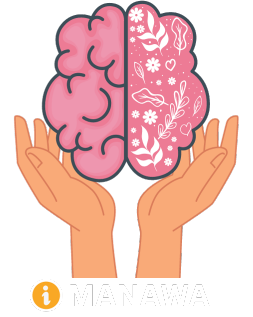
Introduction
Mental health has become an increasingly important topic in recent years as societies recognize its crucial role in overall well-being. While physical health often takes the spotlight, mental health is equally essential. In this comprehensive article, we will delve into what mental health means, its significance, common misconceptions, signs of good mental health, factors influencing mental well-being, and how mental health affects daily life. Additionally, we will address the stigma surrounding mental health, ways to promote awareness, and the importance of seeking help when needed. We will also explore various strategies for self-care, building resilience, and supporting those with mental health issues. By the end of this article, readers will have a deeper understanding of mental health and the steps they can take to prioritize their own well-being.

What Mental Health Means
Mental health refers to a person’s emotional, psychological, and social well-being. It encompasses how individuals think, feel, and behave in various situations, as well as their ability to handle stress, maintain healthy relationships, and make choices that enhance their overall quality of life. Mental health is not just the absence of mental illness; it is a state of well-being where individuals can realize their full potential, cope with the normal stresses of life, and contribute to their communities.

The Importance of Mental Health
Prioritizing mental health is essential for several reasons. Firstly, it directly affects our overall well-being and quality of life. When individuals experience good mental health, they are better equipped to handle challenges, maintain healthy relationships, and make positive life choices. Mental health also plays a crucial role in physical health, with research showing a strong connection between the two. Neglecting mental health can lead to a variety of physical and mental health issues, including increased risk of chronic diseases, reduced cognitive function, and decreased life expectancy.

Common Misconceptions about Mental Health
There are several common misconceptions about mental health that contribute to stigma and prevent individuals from seeking help. One misconception is that mental health issues are a sign of weakness. In reality, mental health conditions are no different from physical illnesses and require proper treatment and support. Another misconception is that people with mental health issues are dangerous or unpredictable. While it is true that some individuals with severe untreated mental illnesses may exhibit concerning behavior, the majority of people with mental health conditions are not violent or dangerous. Education and awareness can help dispel these misconceptions and create a more understanding and supportive society.
Signs of Good Mental Health
Recognizing signs of good mental health is important for assessing one’s own well-being and supporting others. Some indicators of positive mental health include:
- Emotional resilience and the ability to bounce back from setbacks
- Positive self-esteem and a sense of self-worth
- Sustained enjoyment of life and the ability to experience pleasure
- Stable and satisfying relationships
- Effective coping mechanisms for stress and adversity
- Good self-care practices, including regular exercise, healthy eating, and sufficient sleep
- A positive outlook and ability to maintain hope even in challenging times
Factors that Influence Mental Health
Numerous factors can influence a person’s mental health. These can be categorized into biological, psychological, and environmental factors. Biological factors include genetic predispositions and brain chemistry. Psychological factors encompass individual traits, coping skills, and life experiences. Environmental factors refer to social and cultural influences, including family dynamics, socioeconomic status, and access to resources and support systems. It is crucial to consider the interaction between these factors in understanding an individual’s mental well-being.
The Link Between Mental and Physical Health
Mental and physical health are intimately connected. Research has consistently shown that individuals with chronic physical illnesses are more likely to experience mental health issues such as depression and anxiety. Conversely, untreated mental health conditions can contribute to the development or exacerbation of physical diseases. This bidirectional relationship emphasizes the need for holistic healthcare approaches that address both mental and physical well-being.
Mental Health Disorders
Mental health disorders encompass a wide range of conditions that affect thoughts, emotions, and behaviors. They can vary in severity and may include depression, anxiety disorders, bipolar disorder, schizophrenia, eating disorders, and substance abuse disorders. These disorders often require professional diagnosis and treatment, and early intervention is crucial for managing symptoms and promoting recovery.
Effect of Mental Health on Daily Life
Mental health significantly impacts a person’s ability to function in daily life. It influences cognitive processes such as concentration, memory, and decision-making. Individuals with poor mental health may struggle with productivity, interpersonal relationships, and maintaining a healthy work-life balance. It is important to recognize the impact of mental health on daily functioning and take steps to prioritize self-care and seek support when needed.
Stigma Surrounding Mental Health
Despite increased awareness, stigma surrounding mental health persists in many societies. Stigma can manifest as discrimination, social exclusion, and negative attitudes towards individuals with mental health conditions. This stigma often prevents individuals from seeking help and can perpetuate feelings of shame and isolation. Challenging and dismantling the stigma surrounding mental health is crucial for promoting understanding, empathy, and access to appropriate care.
Promoting Mental Health Awareness
Promoting mental health awareness is essential for creating a supportive and empathetic society. Some strategies for promoting awareness include:
- Education and destigmatization campaigns
- Encouraging open conversations about mental health
- Integrating mental health topics into school curricula
- Providing accessible and affordable mental health services
- Advocating for policy changes that support mental health initiatives
- Sharing personal stories and experiences to humanize mental health issues
Seeking Help for Mental Health Concerns
Seeking professional help is an important step in managing mental health concerns. Just as individuals seek medical assistance for physical ailments, mental health issues deserve the same level of care. Mental health professionals, including therapists, psychiatrists, and counselors, can provide diagnosis, treatment, and support tailored to each individual’s needs. It is essential to remember that seeking help is a sign of strength and a proactive step towards well-being.
Self-Care for Mental Health
Self-care plays a pivotal role in maintaining good mental health. It involves taking deliberate actions to prioritize one’s well-being and nurture one’s mental and emotional needs. Some self-care practices include:
- Engaging in regular physical exercise
- Establishing healthy sleep patterns
- Practicing mindfulness and relaxation techniques
- Pursuing hobbies and activities that bring joy and fulfillment
- Nurturing positive relationships and social connections
- Setting boundaries and managing stress
- Seeking therapy or counseling when needed
Building Resilience
Resilience refers to the ability to bounce back from adversity and effectively cope with life’s challenges. Building resilience helps individuals maintain good mental health and navigate difficult circumstances. Strategies for building resilience include:
- Cultivating a positive mindset and practicing gratitude
- Developing problem-solving skills and seeking creative solutions
- Building a strong support network of friends and family
- Practicing self-compassion and self-care
- Learning healthy coping mechanisms for stress
- Developing and maintaining a sense of purpose and meaning
The Role of Genetics in Mental Health
Genetics plays a significant role in a person’s predisposition to certain mental health conditions. While specific genes associated with mental health disorders have been identified, it is important to note that genetics alone do not determine mental health outcomes. The interplay between genetic factors and environmental influences is complex, emphasizing the need for a comprehensive understanding of mental health.
The Influence of Environment on Mental Health
The environment can significantly impact mental well-being. Factors such as socioeconomic status, access to education and healthcare, family dynamics, and exposure to trauma or adverse childhood experiences can shape an individual’s mental health. Creating supportive and nurturing environments is essential for promoting positive mental health outcomes.
How to Support Someone with Mental Health Issues
Supporting someone with mental health issues requires empathy, understanding, and a non-judgmental approach. Some ways to support individuals facing mental health challenges include:
- Offering a listening ear and validation
- Educating oneself about their specific condition
- Encouraging professional help-seeking
- Providing practical support, such as transportation or assistance with daily tasks
- Avoiding stigmatizing language or assumptions
- Respecting their boundaries and individuality
- Offering reassurance and letting them know they are not alone
Cultural Perspectives on Mental Health
Different cultures have unique perspectives and approaches to mental health. Cultural factors, including beliefs, values, and social norms, influence how mental health is understood and addressed within a community. It is essential to respect and integrate cultural perspectives when promoting mental health awareness and providing support to individuals from diverse backgrounds.
The Role of Therapy in Mental Health
Therapy, or counseling, plays a vital role in supporting mental health. Various therapeutic approaches, such as cognitive-behavioral therapy (CBT), psychodynamic therapy, and mindfulness-based therapies, can help individuals explore their thoughts and emotions, develop coping mechanisms, and create positive behavior changes. Therapy provides a safe and confidential space for individuals to process their experiences and work towards emotional well-being.
Holistic Approaches to Mental Health
Holistic approaches to mental health acknowledge the interconnectedness of mind, body, and spirit. These approaches recognize that well-being is influenced by physical, emotional, social, and spiritual factors. Holistic treatments may include practices such as acupuncture, yoga, meditation, art therapy, and herbal remedies. While these approaches can complement traditional therapy, it is essential to consult with a healthcare professional before adopting any holistic treatments.
The Impact of Exercise and Nutrition on Mental Health
Regular exercise and proper nutrition have a significant impact on mental health. Exercise promotes the release of endorphins, which are natural mood enhancers, and can help reduce symptoms of anxiety and depression. A balanced diet rich in essential nutrients supports brain health and can improve mood and cognitive function. Incorporating exercise and nutritious eating habits into daily life is beneficial for overall mental well-being.
Mental Health in Children and Adolescents
Children and adolescents face unique challenges when it comes to mental health. Factors such as peer pressure, academic stress, hormonal changes, and social media influence can significantly impact their well-being. Recognizing the signs of mental health issues in young people and providing early intervention and support is crucial for their long-term well-being.
Workplace Mental Health
Mental health in the workplace is a vital consideration for employers and employees alike. Creating a mentally healthy work environment involves prioritizing employees’ mental well-being, promoting work-life balance, providing access to resources and support, and destigmatizing discussions around mental health. Supportive workplaces not only benefit employees’ mental health but also contribute to increased productivity and overall job satisfaction.
Mental Health and Addiction
Mental health disorders and substance abuse often coexist. Individuals with mental health conditions may turn to substances as a way of self-medicating or coping with their symptoms. However, substance abuse can worsen mental health and create a harmful cycle. Integrated treatment approaches that address both mental health and substance abuse are crucial for individuals facing dual diagnoses.
Respecting Boundaries in Mental Health
Respecting personal boundaries is essential when discussing mental health. It is important to remember that sharing personal experiences or advice about mental health should only be done if the person feels comfortable and willing to engage in the conversation. Respecting boundaries fosters a culture of trust and support.
Conclusion
Prioritizing mental health is crucial for overall well-being and quality of life. Understanding what mental health means and recognizing its significance allows individuals to take proactive steps towards nurturing their well-being. Combatting the stigma surrounding mental health, promoting awareness, and seeking professional help when needed are vital for creating a supportive society. By focusing on self-care, building resilience, and offering support to those facing mental health challenges, individuals can lead happier and healthier lives. Remember, mental health matters, and everyone deserves compassion, understanding, and access to appropriate care.
